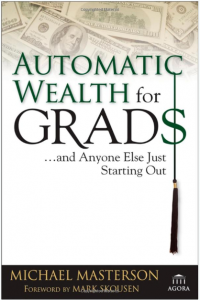Little but Not Brittle

Someone once told me – and this may be 30 years ago – that the secret to making great ROIs in rental real estate is to “go small.”
By that he meant that buying three small houses at $200,000 each will bring more to the bottom line than one for $600,000.
Over the years, I’ve invested in a range of rental properties, from 1,000-square-foot condominium apartments that rent for $1,200 a month to 1,600-square-foot bungalows that rent for $2,400 to houses that rent for as much as $10,000. Looking back, I can say that he was mostly right. Apartment buildings consisting of smallish two-bedroom/ one-bath units gave me the highest per-square-foot cash flow.
But there’s another side to that strategy. Renting out smaller units can be more costly in terms of maintenance, management time, and bookkeeping. That’s simply because there are some things – like accounting, contracting, and customer service – that must be done for each unit, regardless of how much income it can provide.
And the likelihood of getting a single bad tenant in a smaller, less-expensive property is higher than it is for a large property. Even if you hire a management company to take care of the day-to-day, bad tenants = agita.
On the one hand, you have the benefit of larger net cash flow with many smaller rental units. On the other hand, you have the problem of higher maintenance and management costs.
And although I hesitate to mention it here for fear it will complicate the issue, rental revenues and maintenance and management expenses are significantly affected by the age of the property. This is obvious. Anyone that has inhabited both new and old residences understands the benefit of new.
So, generally speaking, it’s more profitable to own smaller units. But only if you can keep the maintenance and management expenses down. And the best way to do that is to buy new or relatively new properties.
If I were to begin again, I would be looking for relatively new (less than 20 years old) apartment buildings of 30 to 50 units. And I would have them run by a company that would keep them 90+% occupied by (1) providing good building management and customer service, and (2) using iron-clad rental agreements that would allow them to evict bad tenants as quickly as possible.
In other words, more revenue + less maintenance costs + tough contracts = higher per-square-foot profits. (I think of that as “little but not brittle.”)
But for several years, I’ve been thinking that there may be an even better deal out there: buying and renting out self-storage units.
They are considerably smaller than apartment buildings, so, in theory at least, they should be considerably more profitable. Management costs are less because there is so little to manage. Maintenance costs are inexpensive, too, because you are not maintaining the units per se (they are virtually indestructible), just the building itself.
Why I haven’t made a serious effort to look into this before now, I can’t say. I’m not sure I will buy anything, but I’m going to do some research and see if the opportunity for low-stress profit is as good as I imagine it could be.
This came to mind after I read an article in some business blog about the rental real estate industry. It said that, as a sector, self-storage facilities have always done well, in good times and bad. (Apparently, they made a killing during the pandemic lockdown.)
In another an article, written in 2021, The Wall Street Journal categorized them as “the best bet in real estate.”
Here are some facts:
* More than 10% of Americans lease storage space today.
* In June, they paid an average of about $166/month to do so. (Even when the value of goods in storage doesn’t match the price of storing them, customers weirdly don’t seem to mind.)
* That makes self-storage in the US a $29 billion-a-year industry. (And Extra Space Storage just struck a $12.7 billion deal to combine with Life Storage, its rival, making it the largest self-storage business in the US.)
* Google searches for “storage near me” are continually rising.
Plus, as pointed out in an article about this in The Hustle, “so long as there’s death, divorce, disaster, moving, and marriages, there’ll be people scrambling to pack things away.”
So?
So, I’m going to take the next step and track down someone that is in the self-storage business and see what he or she has to say.
 MarkFord
MarkFord












